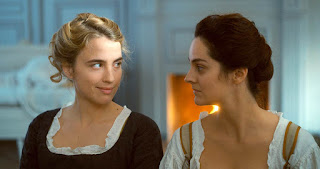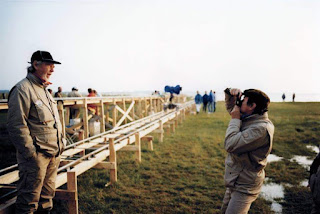The World of Wong Kar-Wai, Ranked.
The ideation of romance in world cinema has mostly been in a miniscule of stereotyped traits. Boy meets girl, they start to grow feelings, start fighting against all odds, gets through the highs and lows together to finally meet the happy ending.
However, romance in cinema was revolutionised during French New Wave by Jean-Luc Godard, as he broke all these stereotypes, and gave us an outlook of the outskirts of love, painting a plethora of shades to it. That idea dimmed to fizzle in the upcoming years as well.
When it comes to the celebration of love and emancipating the essence of hormonal tension going between two people or more than that, Hollywood has always been the big picture. That scenario went topsy-turvy in the East Asian region, when a reassuring filmmaker, brimming with all the potentials of altering the entire concept of romance to a whole new level, enters the arena and went on to create a sensational aftermath of passionate romance laced with recurring loneliness, ambient in neon cities, romanticising late-night blues all over again, with cigarettes and jukeboxes, needless to mention the usurping of pensive thoughts on rainy days.
The man, who doesn't need an introduction for creating his own genre.
Wong Kar-Wai, the Godard of East Asian Cinema.
As the maestro of passion turns 63 this year, here's a comprehensive ranking of 7 of his most celebrated films, which needs to be watched by every budding person, who still thinks of one cinema has enough power to tingle one's sentiments for making a film, or someone who still believes in the idea of unadulterated love, even after facing thousands of heartbreaks and rejection.
7. As Tears Go By (1988)
The debut film of Wong, is also his most inferior one among the lot at the same time. But miles away from being touted as a major letdown or having some novice's traces on it.
Moreover, this is the starting point of his consistent charm in filmmaking, evident right from the first moments of it, cameras moving restlessly along the clingy lanes of Hong Kong.
Wong's first film definitely trods on romance, but it builds mainly on the grim underworld murking in the black markets. It also has got the devilish touches of an incestuous romance, add to it, Maggie Cheung defining beauty in simplicity right from her debut film as well.
And lastly, you can't doubt a film's honesty in sensuality when you hear the Chinese version of "Take My Breath Away" by Sandy Lam, while the passion soars high in the right notes.
6. Days of Being Wild (1990)
Wong's sophomore film is a tad bit improvement from his debut, while the dynamics of passion hits higher than earlier. The thing with his films or the way he used to see them, looks nothing more than a shady pulp fiction on paper. But the more one devours into the abyss of it, the film becomes much more soulful.
Days of Being Wild, the first one in his Love Trilogy, centres around a playboy Yuddy (Leslie Cheung), whose life gets grounded when he sets on a journey to decipher his real mother, after getting to know he's been lied to by the woman who raised him.
If not anything, this film gets carried away by some mellifluous curated jazz percussions along with the narration. Wong has always portrayed masochism in his films through aggression, or a primary male gaze trying to win hearts, by putting on their usual charm. And that surely has it's own beauty when you're romanticising one. But as the name suggests, the bewilderment doesn't sync enough with the modern perspective, hence the romance feels outdated this time.
5. 2046 (2004)
The concluding film of Love Trilogy, also one of the last few works of Wong, this one picks up few years after Mr Chow from In The Mood for Love, after a heartbroken affair, ends up in a hotel in a room numbered "2046" goes on penning fairytales of a futuristic dystopian lovelife occuring in the year you know it already. No brownie points for guessing.
The substantial amount of desire and sexual tension that was brimming on full capacity in In The Mood for Love, spurted out in gigantic proportions, metamorphosing into a saga of lustful games, sans the emotions.
With a lovelorn Tony Leung, hovering through the narrow stairs and passages of the hotels in Hong Kong, while his eyes are doing all the talking while the smoke smothers them, has always been a treat to watch, and this film's nothing of an exception. It's just the film is refused of the inherent warmth resilient in Wong's films, and presents a rather matured story of a soul discovering love through flesh and bones only.
4. Fallen Angels (1995)
An unofficial sequel to Chungking Express, where the events pick up exactly an year after the former ends. This film has got undoubtedly the best collaboration of the prestigious director-cinematographer duo of Wong and his brother-in-arms Christopher Doyle.
After a wispy study of alpha masculinity in his first two films, Wong finally explores the offshoots of a relationship, and how far love can go, breaking the constraints of it. On paper, it sounds too basic to be outstanding. But everything can be upgraded extraordinarily when you extend the canvas and play with the cameras on as many angles as possible. From opening the film with fisheye lens on two contract killers working discretely, thus symbolising voyeurism of audience to rapid jarred editing of Takeshi Kaneshiro being in the idea of love in madness is just a blessing to be witnessed.
It's nothing less than a wonder to concur that Wong Kar-Wai hadn't been able to accomplish all the sensational imageries he'd been able to paint accurately, if it's not been for some astounding anamorphic lensing and camerawork of Doyle.
An amazeballs of a director-cinematographer pair that has ceased to exist, probably causing an irreparable loss in the world of passion in poetry.
3. Happy Together (1997)
Making a gay film on Asians were a great deal of stereotyped taboos with strikes of boldness on it back then. But Wong succeeded to pull off a love story between two souls loving the wine and not the bottle with such tenacity back then, it even surpassed his usual dose of quintessential love stories.
It's an undeniable fact that no one other than him, can portray so many emotions of a person at the same time, that too with supreme accuracy, and never even fails to deploy any kind of boredom while building the imagery and creating the ambience. While Tony Leung and Leslie Cheung orchestrated so well as a couple, one just couldn't take their eyes off for a miniscule moment doing even the most basic household chores.
It's really hard to nitpick a single great thing in his top-tier films. Everything seems to be so perfect and synchronised with the blessing of time and love.
2. Chungking Express (1994)
The art of bifurcating two parallel narratives, not at a single point of intersection, but leaving asymptotes of it in an equal frequency was a phenomenal feat to get attracted to.
This is the most basic Wong Kar-Wai film one can ever experience. Flashy neon lights hovering around the streets of Hong Kong, to suffocating subways filled with commotion, noisy clusters, and a lot of echoing chaos muddled with quarrels and gossips, is what this film establishes it's core upon.
Another bolstering achievement of this film is it's precise experimentation on framing and editing. As mentioned above in Fallen Angels, this film paves the pathway for the signature jarred editing to when He Zhiwu/Cop 223 (Takeshi Kaneshiro), in the first segment, runs across a busy marketplace, hurdling through the commotion, in pursuit of a lady criminal on the run (Brigitte Lin), and at the same time falling in love with an ambiguous soul, the entire mise-en-scene summarises the traits of the character in a nutshell.
The second narrative shows the congestive ambience of Hong Kong eateries, and amidst all of that loudness, a waiter girl tries to find her part of love and peace within her oddity, whether be it playing music out loud in the open, or regularly sanitizing the place of her lover in discretion. It is the phenomenal performance of Faye Wong that convinces us to fall in love with a soul that promises to blossom everyday, by enclosing her exposed image in silence.
1. In the Mood for Love (2000)
Whenever there's been talks of debating for the best romantic film of all time, this film has always earned its place within those discussions. And there's ample of reasons for that.
The idea of pitching a chemistry between two people in love is pretty much a layman's job these days. But, pitching the idea of two people enacting to be in love, the sheer essence of it, just for being innocent victims of infidelity, subverting their sorrows into puddles of love and five stages of acceptance is an extraordinary thought in the least said way.
In the Mood for Love is not only the best Wong Kar-Wai film till date, but it's certainly the most essential film in the decades to arrive and in the decades that has been engulfed in passion. As the protagonists Mr. Chow and Mrs. Chan gets to know the secrets of their partners cheating on each other, it becomes the journey of two people and two phantoms configuring their coping mechanisms in darkness and fantasy.
A film, enriched with sweet emotions of unrequited dreams, filling the room with plentiful sensuality to act upon their cohort minds, is just an ubiquitous specimen of the evolution of a masterpiece. And it wouldn't have been possible without the chemistry between Tony Leung and Maggie Cheung, which is, needless to mention, establishes as a prototype of how illicit affairs can be looked upon naivety in the garb of innocence. A landmark, unaware of it's greatness.
Here's wishing a prosperous 63rd birthday to the Auteur, with a lot of anticipation for his upcoming venture "Blossoms Shanghai".



















too good!
ReplyDeleteMuchos gracias God!
ReplyDeleteBhison valo laglo dada. Keep discussing cinema.
ReplyDeleteMuch elated 🥰
Delete